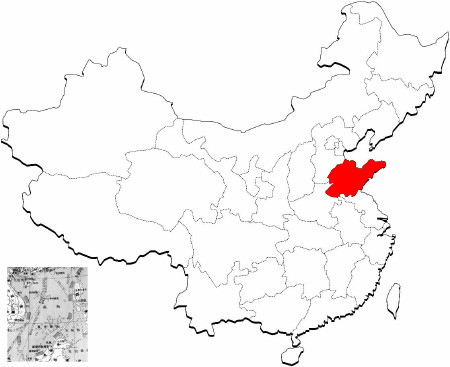STUDY AT SDNU
INTERNATIONAL STUDENTS OFFICE
This is the place
Where Confucius the sage was born,
Where Mount Tai rose majestically to the sky,
Where the Yellow River empties into the sea.

Shandong, a province half way between Peking and Shanghai, is an economic powerhouse on China’s east coast. It connects China’s far-flung inland with the vast west Pacific and faces across the sea between Japan and South Korea. As home to a population of 97.894 million, Shandong covers a land area of 157.1 thousand square kilometers and a marine area of 170 thousand square kilometers. The coastline of Shandong stretches 3345 kilometers long, accounting for 1/6 of China’s total. Shandong has under its jurisdiction 17 municipalities, including Ji’nan, the provincial capital, and 137 counties (county-level cities, districts).

Shandong has a well-developed transport system, as the Peking-Shanghai Railway intersects Ji’nan-Qingdao Railway here. The high speed railway will take you from Ji’nan to Peking in merely 90 minutes and to Shanghai in three and half hours. The province is famous for its crisscrossing expressways with a total mileage of over 5,000 kilometers. A total of 8 civil airports, 4 of which international in Ji’nan, Qingdao, Yantai and Weihai, allow the province to operate over 300 commercial flights to international and domestic destinations including those in the United States, Japan, ROK, Hong Kong and Taiwan. Ports in Qingdao, Yantai, Weihai, Rizhao and other places have become important seaport hubs in Asia. Qingdao, the shipping center of northeast Asia, ranks first in north China in terms of cargo and container handling capacity in international trade.
Shandong, with its long and brilliant history, is one of the cradles of the Chinese culture and civilization. It is also home to such extraordinary thinkers as Confucius, Sun Tzu, Mencius and Mo Tse. The distinctive Qilu Culture has secured Shandong a unique place in China’s cultural map. The Confucianism represented by Confucius, in particular, has great impact on world civilizations even today.

Mount Tai, the national key tourism resort, is the most worshiped one among the five holy mountains in China. It used to be the place for Chinese emperors to pay homage to heaven. Thanks to the grand scenery and profound imperial culture, Mount Tai was double-listed by UNESCO as the World Natural Heritage and the World Cultural Heritage in

Qufu, capital of the one-time State of Lu in Spring and Autumn Period and one of the first 24 Historic and Cultural Cities designated by the State Council, is the hometown of Confucius. The Confucius compound, complete with the temple, mansion and cemetery, was listed by UNESCO in 1994 as the World Cultural Heritage.

Jinan is also known as the "City of Springs" because of a large number of springs. Baotu Spring is the most prestigious one among the popular springs and is honored as the finest spring under heaven.

Qingdao, a well-known coastal city, enjoys the reputation of “World Beer City” and “International Sailing Capital”.